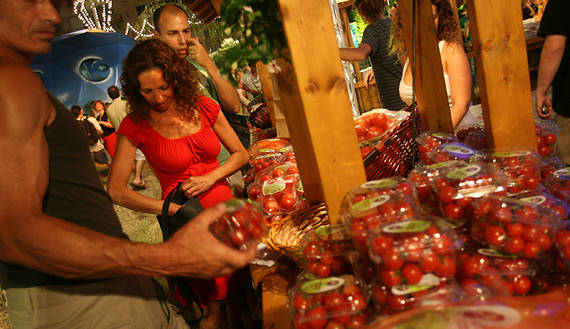
On the morning of April 14, less than 12 hours before the traditional Passover holiday dinner, a quick visit to a supermarket called Shelanu (Hebrew for “Ours”) in the east Bitzaron neighborhood of Tel Aviv reveals little activity. The few shoppers move lethargically among the aisles. Not a single one of them, by the way, is one of 500 members who each paid 1,000 shekels ($290) to join the social-economic cooperative founded at the end of 2011, because it has yet to start an intensive membership drive.
Not far from there, at a huge chain supermarket, it’s mayhem: carts laden with produce roll through the massive parking lot, sometimes more than one cart to a customer. Israelis have not yet changed their consumption habits, despite their anger at the large retail chains. They refuse to stop buying there, not even on “Supermarket Free Day” declared this year on April 1.
A comparison between the large markets and the cooperative Shelanu store is like comparing a Chihuahua to a Great Dane. Shelanu takes up only 160 square meters (191 square yards), while the large chain stores are spread out over about 5,000 square meters (5,980 square yards). Some of them offer as many as 20,000 different products, an order of magnitude more than the number offered by Shelanu.


